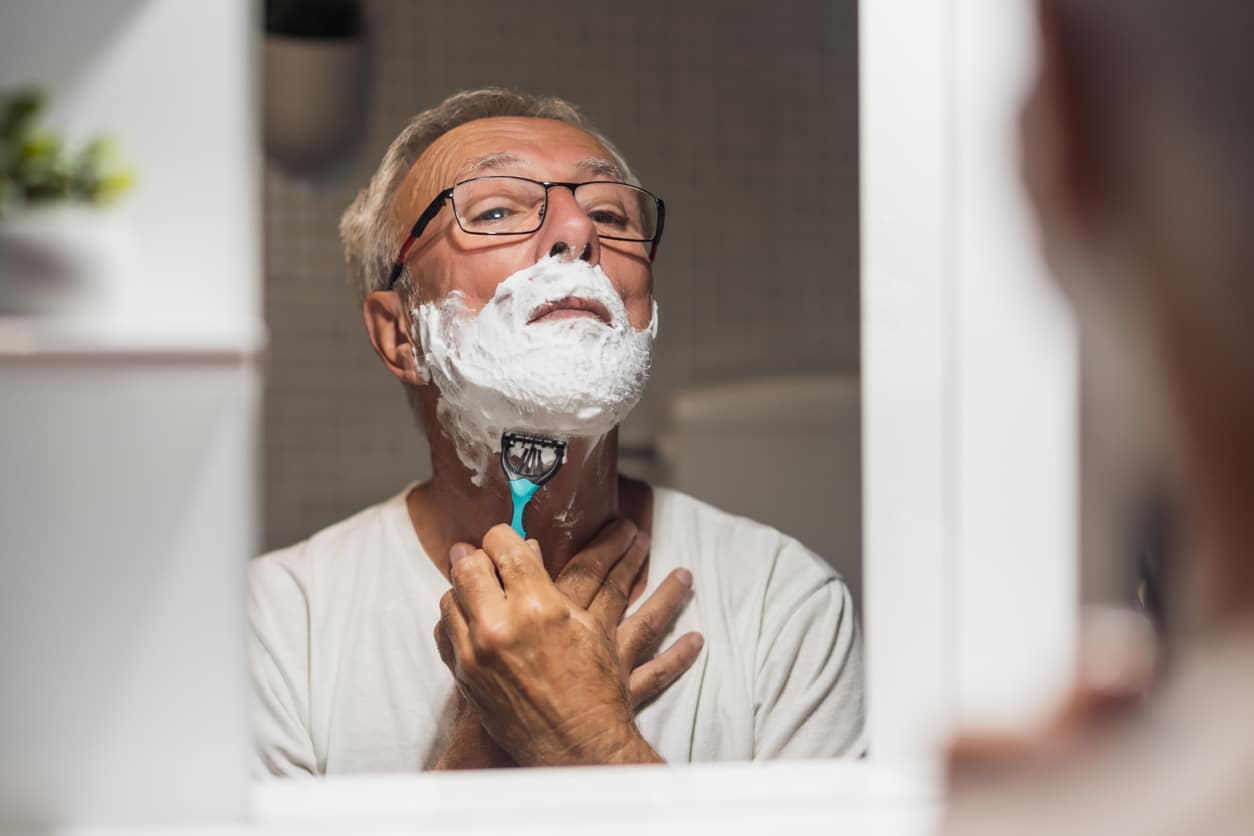If mom has always had her hair well-coiffed, her clothes immaculate, and her nails clean and polished but suddenly seems to be slipping in the personal care department it’s often a sign of bigger issues. When noting changes in seniors and personal care keep in mind that the older a loved one gets the more likely they will struggle to perform personal hygiene tasks, get laundry done, and keep the house as well as they used to. When this time comes, there are plenty of ways to help!
Address the problem with empathy
If seniors and personal care become an obvious issue, ask what problems they are having with empathy. Maybe they are struggling to shower, style their hair, brush their teeth, or even make it to the bathroom in time. If they seem unwilling to talk about it or deny there is a problem it may be because they are afraid to ask for help, don’t want to be a burden, or don’t want to admit they aren’t as capable as they used to be. Whatever the reason, however, just offering a helping hand may be all the incentive they need to come clean. For advice from the experts, check out the California Mobility article, “12 Expert Tips: Encouraging Elderly Parents To Accept Help.”
Try a little DIY for Personal Care
Making it easier for a senior to accomplish personal care tasks by themselves is another way to help. For example, if showering is a problem because they don’t have a walk-in shower suggest one be installed and offer to get professional estimates. Another problem is round faucet handles that are hard to adjust for temperature by those with arthritis and joint pain but can be replaced with lever-type handles for ease of use. Also helpful are grab bars for use in the shower and by the toilet and shower chairs that help minimize fall risk. And if incontinence is the issue, help them get to the doctor for treatment options.
Understanding different types of help
When the family is not available to assist, it may be time to hire helpers for seniors and personal care. It is important, however, to understand that housekeepers are not usually trained to be caregivers, and caregivers may or may not be able to provide housekeeping services in addition to personal care, so you may have to hire both.
For seniors with health problems or who need help managing medications, it is especially important that a hired caregiver have medical training such as a nurse or certified nursing assistant (aka CNA) so they can provide the level of care needed safely and confidently. Keep in mind however that in-home care can be costly and may also be hard to find depending upon location.
Another option for seniors and personal care is to move to assisted living where expert care is available 24/7/365 and services like housekeeping, laundry and more are all just part of the package — not in addition to the monthly fee. Get the facts in our blog “Comparing Costs of Assisted Living vs. Home Care.”
It may not just be physical
Another angle on seniors and personal care is that memory loss may also be at the root of the problem. Forgetting to shower and shave, clean up messes in the kitchen, take medications, or simply no longer care about personal appearance may signal cognitive decline. Whether it is mild cognitive impairment, one of the types of dementia, or Alzheimer’s disease, it may be time to intervene to ensure the safety and security of a loved one.
Again, in-home care is an option for seniors and personal care, although the costs can be prohibitive for many families, or memory care may be the best solution. Memory care communities like Ganton’s Countryside offer not only a socially stimulating environment but also therapeutic activities and around-the-clock security, in addition to amenities like nourishing meals, comfortable homes, and compassionate caregivers. Learn more in our blog, “Memory Loss and Memory Care Guide.”
Seniors and Personal Care: Talk about it
When a move to senior living is the best option for seniors and personal care, it may become a contentious situation, but it doesn’t have to. Many times, it’s not what you say, but how you say it that can make the biggest difference. By approaching the subject carefully with love and empathy it will be much more productive. Learn how to talk about making a move in our blog, “My Parents Won’t Move to Assisted Living – Resources to ease the conversation.”
We make seniors and personal care a priority at Ganton’s Countryside so each resident looks and feels their best every day. For more information about Countryside, please call Margaret Nagel at (517) 206-5000 or download our brochure to learn about our care levels, cost, and amenities.


